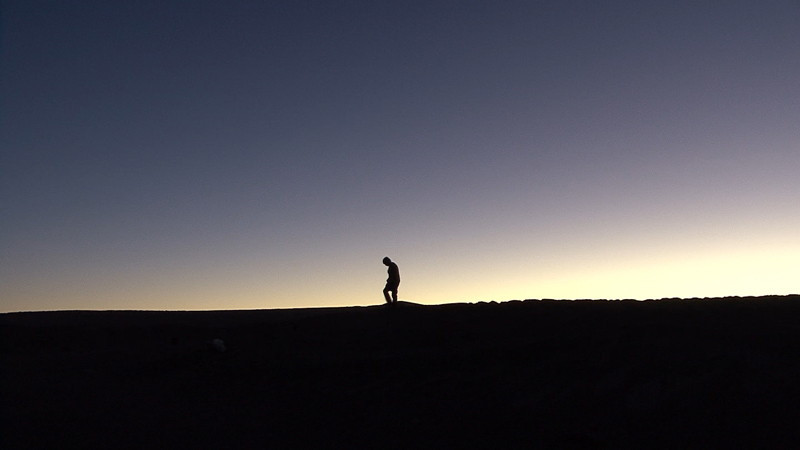Turn out the light
Award-winning doc misses the mark
You have to be in a certain mood to watch Nostalgia for the Light.
If you’re in the mood for a fast-paced documentary that discusses the exciting world of astronomy, this ain’t your flick. Slow moving, calculated and nearly sterile, this film is About a Son slow. Astronomer Gaspar Calas’ narration spills over shots of the cosmos, dusty clock radios and everything else in the universe, setting the tone immediately for what will play out over the next 90 minutes.
Director Patricio Guzman (Salvador Allende) takes the viewer to Chile’s Atacama desert, where some insanely expensive looking telescopes capture images of the stars. Beautiful light dances play out for the camera, fleshed out by a sparse orchestral score, and it’s a good 15 minutes until we see the first unnamed talking head.
This talking head explains how quickly light moves (something that this viewer assumes the people who are into watching this film would already hold a great deal of knowledge about), but the second talking head, an older gentleman down in the desert, takes us on a walking tour of some rock drawings, followed by a tour of his office and some more shots of the galaxy interspersed with mummified corpses.
Another in a long line of talking heads shows us his handcrafted wooden telescope. He also walks us through some ruins, a walking tour of an old military massacre.
People that dwell on the past like this seem to have an incredibly hard time moving forward.
Mostly focusing on men, there are a few women involved in this nostalgia. They walk the desert, looking for petrified remains. Morbid stuff, but truth is stranger than fiction.
Another woman tells the tale of some disappeared parents, and somehow, astronomy has helped her to suppress her pain.
Perhaps this film is simply about people who think too much about the simple things in life, but they live in the past, these “transmitters of history.”
There is a level of discovery and wonder and all the science involved that is clearly fascinating but the film itself is a jumble of ideas, playing out like a bad PBS special.
It’s also incredibly depressing. Maybe I’m missing the point, but maybe the filmmakers did as well.
Published in Volume 66, Number 9 of The Uniter (October 26, 2011)







